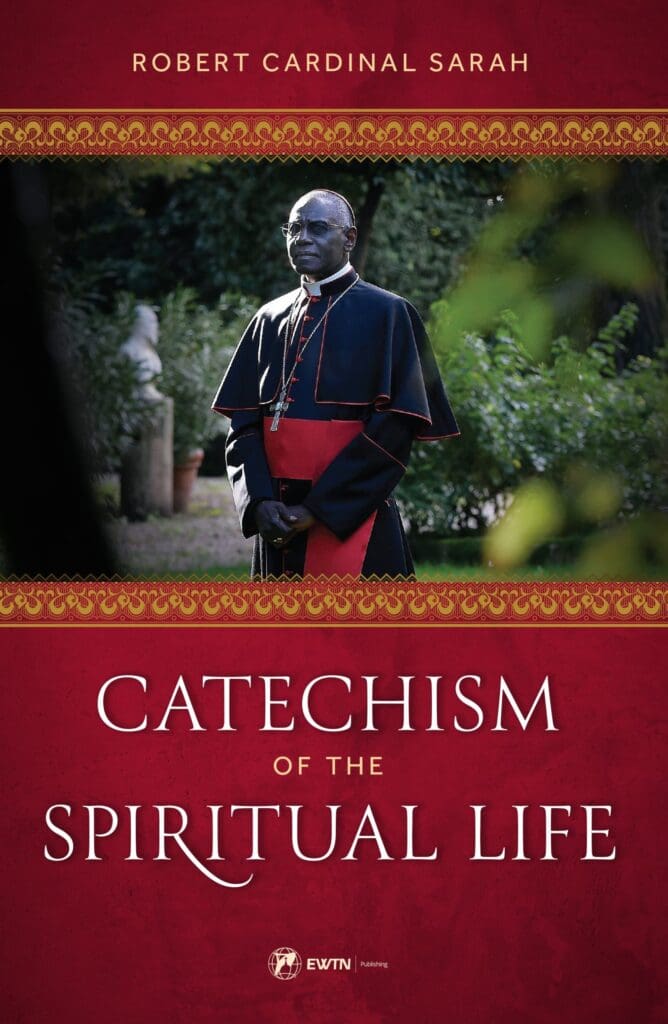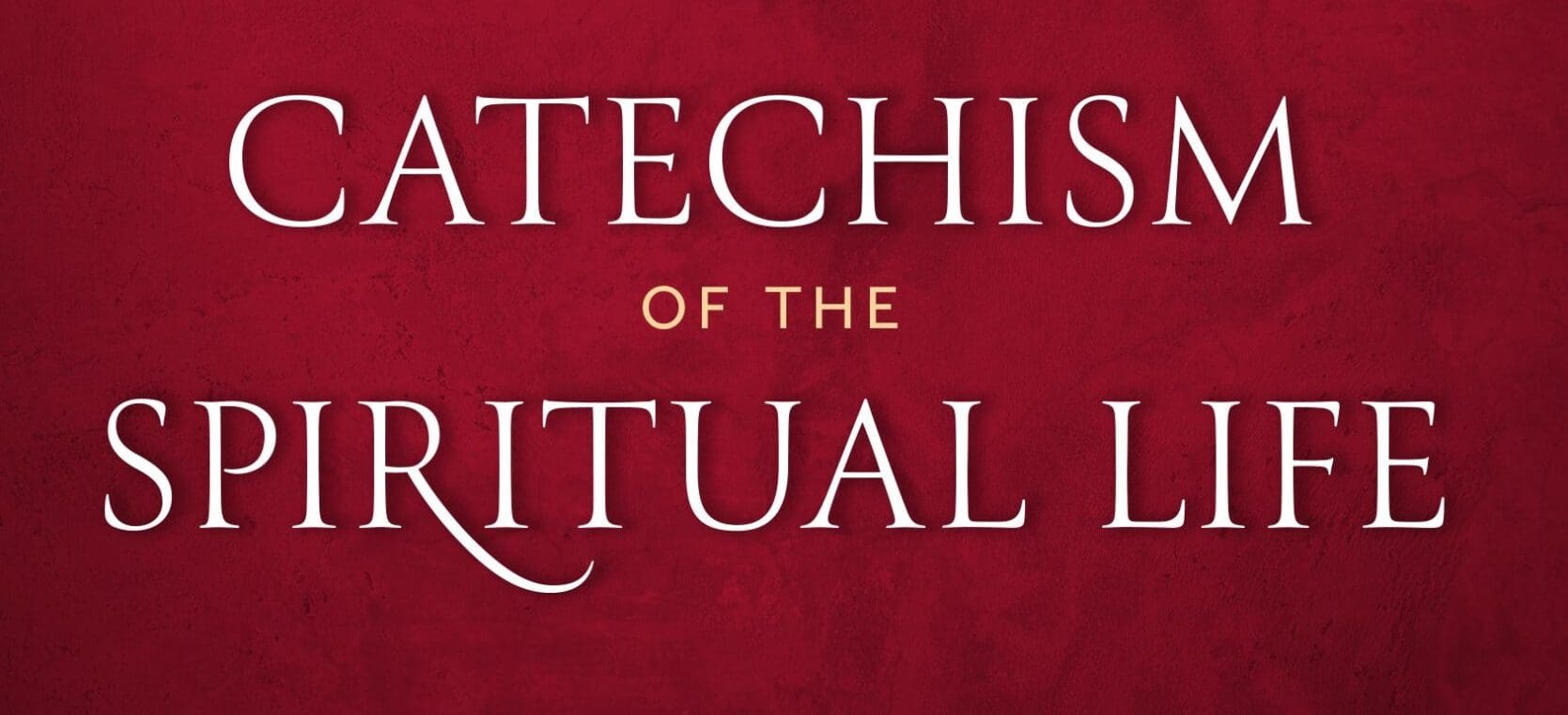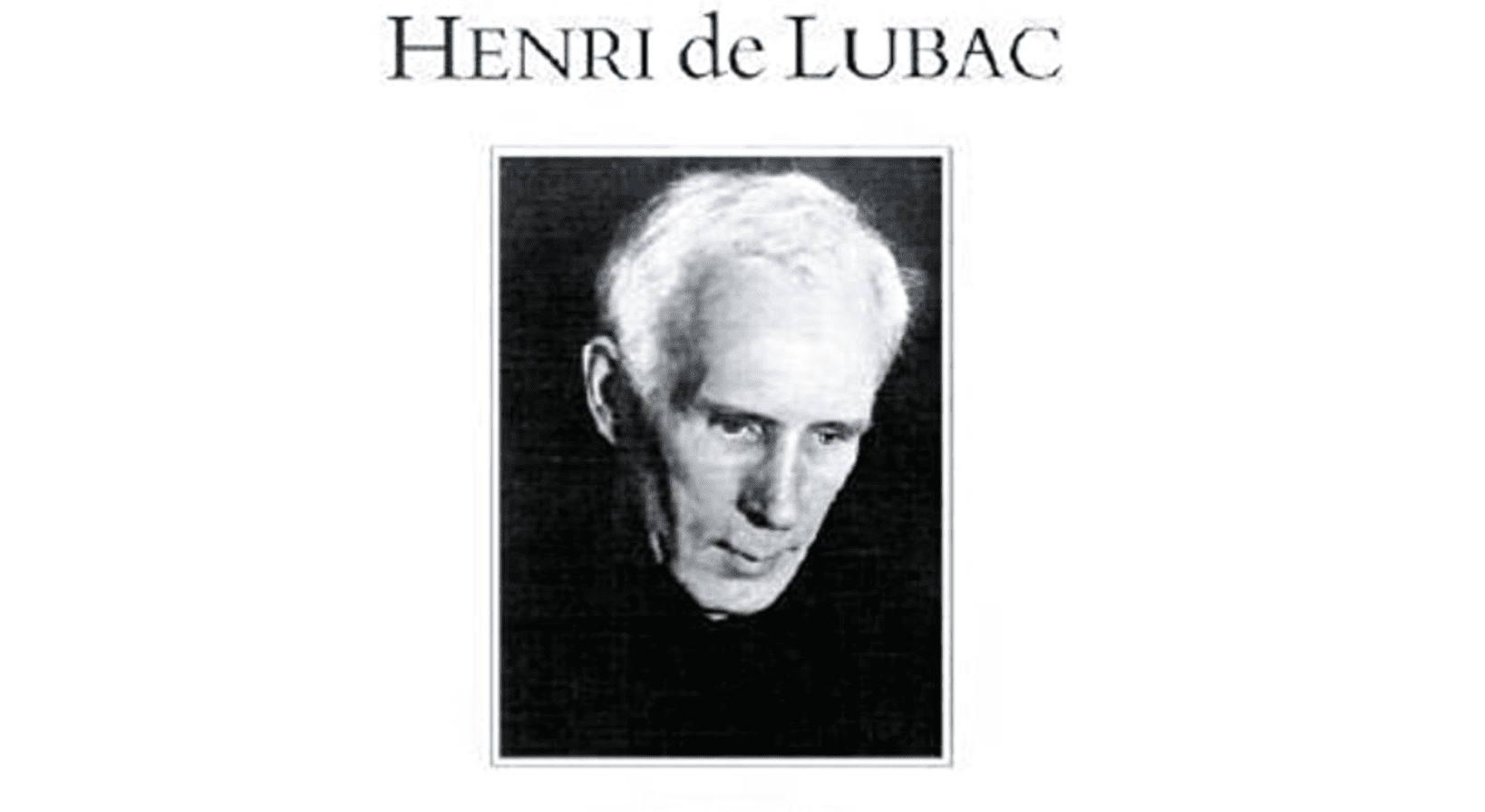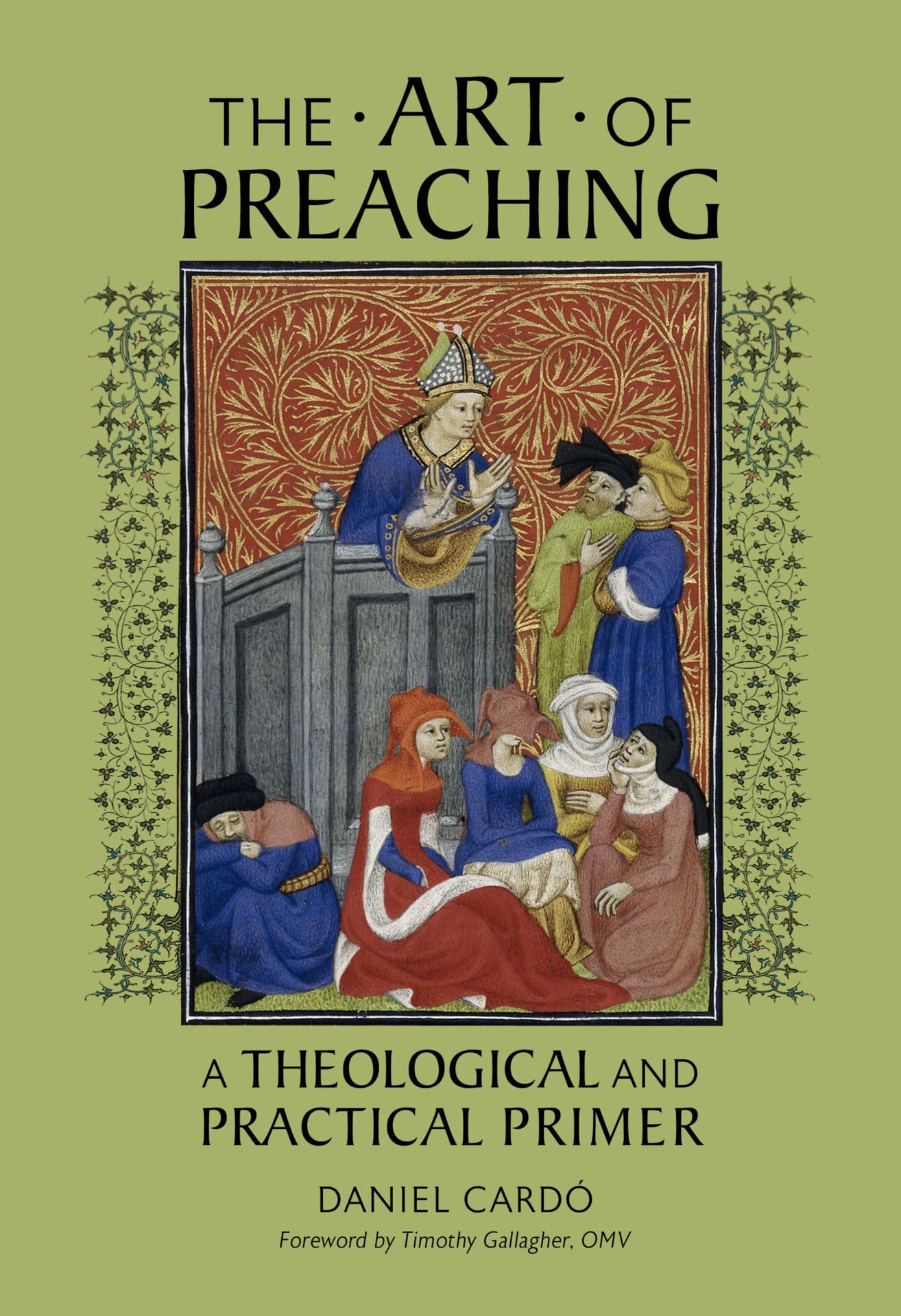Catechism of the Spiritual Life by Robert Cardinal Sarah. Irondale, Alabama: EWTN Publishing, Inc., 2022. ISBN 978-1-68278-293-4. $24.95 hardcover.
In the introduction to his book Catechism of the Spiritual Life, Cardinal Robert Sarah observes postmodern society the way a doctor observes a patient. He notes the symptoms of a crisis of moral values, confusion within the Church about divinely revealed truth, and loss of meaning in the liturgy. Then, with clarity and precision, he diagnoses the problem as a disease of the interior life, a lack of life-giving encounter with God and an absence of a path forward in relationship with him. The cure Cardinal Sarah presents to the reader is an outline of the basic means of entering into relationship with God, or as he puts it, a “catechism of the spiritual life.”

Cardinal Sarah wisely intuits that the Church today does not simply need a book on the spiritual life, but a catechism. When the Catechism of the Catholic Church was published in 1992, Pope John Paul II wrote in the accompanying apostolic constitution directing that the new catechism be promulgated, Fidei Depositum, “A catechism should faithfully and systematically present the teaching of Sacred Scripture, the living Tradition of the Church and the authentic Magisterium, as well as the spiritual heritage of the Fathers and the Church’s saints, to allow for a better knowledge of the Christian mystery and for enlivening the faith of the People of God.” He later adds that a catechism should “help illumine with the light of faith the new situations and problems which had not yet emerged in the past.” St. John Paul II correctly identified two great needs of the Church: 1) a detailed and ordered presentation of the faith and 2) an application of those truths in modern times. His answer was a catechism.
The Eternal Today
The two needs that St. John Paul II recognized broadly in the Church can also be identified in the more concentrated area of the spiritual life. One need only examine popular booksellers to see this need. A quick search in Amazon for Catholic spirituality books yields over 80,000 results. While search results do include some classics, most titles are by relatively unknown authors and include everything from Catholic gardening to the history of the Mass. The average layperson seeking to grow in his relationship with God could feel overwhelmed trying to discern where to begin and which authors to trust. Then, there is the matter of new problems and controversies that have emerged in the modern era.
In the past 10 years, the Church has debated how to address, to offer a few instances, the rise of transgender issues in society, rampant divorce and the question of divorced-and-remarried persons receiving Holy Communion, and new liturgical movements springing up in the Church. All of these debates can have a profound impact on the spiritual lives of those who ponder them. Thus, a simple roadmap outlining the spiritual journey with applications to modern circumstances from a trusted source is sorely needed. Enter Cardinal Sarah.
Cardinal Sarah is not unique in attempting to offer a roadmap of the spiritual life. What is unique is that he presents the sacraments as the roadmap, whereas many other spiritual writers focus on methods of prayer and ascetic disciplines. Take, for instance, Introduction to the Devout Life by St. Francis de Sales. In this book, written more than 400 years ago, de Sales also wishes to provide a roadmap for the average Christian to grow in relationship with God. However, he structures his book around methods of prayer, key virtues to pursue, ascetical practices, and advice for overcoming temptations. In a more recent book, written in 1961, Go to Heaven: A Spiritual Road Map to Eternity, by Archbishop Fulton Sheen, chapters cover topics such as prayer and meditation, resignation to God’s will, and suffering. While these two prolific spiritual authors certainly speak of the sacraments, these premiere gateways to grace are not the foundational structure of their books.
In the eras of the Church in which de Sales and Sheen wrote, Catholics were much more likely to baptize their children, marry in the Church, and participate in sacramental life, so perhaps because the sacraments were taken as a “given,” these authors felt that the needed emphasis in the spiritual journey was on meditation and various spiritual disciplines. However, in the modern era, there is a rapidly declining participation in the sacraments, and Cardinal Sarah rightly discerns that there is a dire need to show the faithful that the sacraments are their path to Heaven.
Practical Truths
As Senior Manager of Spiritual Formation for the Fellowship of Catholic University Students (FOCUS), I have noticed that even the students who are the most passionate about their faith lack an understanding of how the sacraments change their lives. Take, for instance, the most well-formed students’ understanding of the Mass. These students will say that the Mass is the “source and summit of their lives,” but in conversation with them, they are not able to say why. If they are encouraging students to come to Sunday Mass, the main reason they give is that “Jesus is really there.” While this answer speaks to their faith in Jesus’ presence in the Eucharist, the fact that it is usually the only answer they give shows that they do not fully understand the Mass as a sacrifice or how they are called to actively participate in it.
In contrast, when you ask them about Eucharistic adoration, they are overflowing with examples of how praying before the Real Presence in the monstrance has changed their hearts and drawn them closer to God. In listening to them, one would easily think that Eucharistic adoration is the source and summit of their lives. While these students have a good foundation, they need more. They need to understand the radical transformation that the sacraments effect in their lives and practical ways that they can dispose themselves to receive the graces God has in store for them in the sacraments. Cardinal Sarah’s book is the perfect blend of theology and practicality that is needed by these students and countless other faithful Catholics.
Sarah structures his book into nine chapters, which includes a chapter for each sacrament, a chapter on praying with Scripture, and a chapter on the mission of the Church. He begins each chapter devoted to one of the sacraments by diving into the rich theology of that sacrament and then weaves in contemporary questions, providing clear answers from the Church’s doctrine and tradition. One continual emphasis throughout these seven chapters is the receptive nature of the sacraments, juxtaposed to the modern “will to power of contemporary science, which would like to make man capable of creating himself as he pleases” (28).
For example, in his chapter on baptism, Sarah points out that, while our first parents sinned in trying to become like God through their own human effort, baptism “is the humble, grateful acceptance of this unprecedented gift of divinization, the work of the Most Holy Trinity in us” (24). Sarah thereby shows that baptism is a consent to God’s work in the soul and heals the inclination towards self-reliance in the quest for holiness. The emphasis on God’s work in the sacraments vs. human striving for holiness is an important reminder for modern readers, who live in a self-help culture and can easily reduce the spiritual life to a list of goals they must accomplish to reach heaven.
Clarity Amid Controversy
While Sarah offers a beautiful summary of the theology of each sacrament, it is his clarity and directness in addressing modern controversies which may benefit readers the most. For instance, Sarah openly recognizes that there has been confusion among the faithful regarding Pope Francis’s 2016 apostolic exhortation Amoris Laetitia and the Church’s teaching on the reception of Holy Communion for those who are civilly divorced-and-remarried. He acknowledges that “the words of pastors—whether bishops or priests—may sometimes be ambiguous” (203) and then states that their teaching “should be compared with the source, that is, with the words of Jesus and with the Tradition of the Church since the beginning” (203). Cardinal Sarah then states unequivocally that divorced-and-remarried persons must not receive Holy Communion. With the Church in the United States entering into a time of Eucharistic revival, direction such as this is timely and wise, and such clear teaching on worthy reception of the sacraments will surely be helpful for the faithful seeking to grow in their spiritual lives.
Cardinal Sarah’s candor, as in the above example, is a hallmark of this spiritual master’s works; some readers will surely find it refreshing and clarifying, but others may find it jarring. For example, when speaking of the Holy Spirit as the soul of the Church, Sarah notes that some Christians only speak of the Church’s imperfections and the failures of her leaders. He then states that such a Christian “contradicts his faith and doubts the Holy Spirit” (40), and that speaking about the Church in this way “amounts to fighting against Her and contributing to Her annihilation” (41).
In speaking of the recent Coronavirus pandemic, Sarah laments, “Astonishingly, however, very rarely did we see the pastors of the Church praying and having others pray to God for the end of this scourge, and in the churches holy water was replaced by hand sanitizer, which apparently they think is more effective at protecting us. Where has our faith gone?” (274). Speaking of priests who give Holy Communion to the divorced-and-remarried, Sarah writes that, “Like Judas, they sell Jesus for thirty pieces of silver so as to be considered merciful, open-minded, and understanding by the world” (206). Sarah confronts these and other controversial topics with his characteristic frankness.
His concepts are not particularly novel in themselves to those who are familiar with the spiritual life and the eternal concepts that have been taught by mystics for the ages, yet he sets himself at odds with a world that is increasingly hostile to Church teaching and with pastors who have shied away from teaching the truths of the faith to offer softer messages of tolerance and compassion. Readers will benefit not only from hearing the truth proclaimed by Cardinal Sarah, but also by his example of fearless adherence to Christ’s teachings.
Divine Invitation
Written for a broad audience, Catechism of the Spiritual Life is best suited to the average lay faithful. Readers looking for rich but simple theology on the sacraments and candor on modern controversies will find both in this newest work by Cardinal Sarah. Those who have noticed in themselves a lukewarm devotion to the sacraments will be inspired to frequent them with zeal and increased appreciation. Those seeking a greater understanding of the sacraments and their role in the spiritual life will also find it in Sarah’s book. Those simply desiring to grow in relationship with God will see the great plan established by God through the Church to bring the faithful closer to him.
Cardinal Sarah’s latest work invites the faithful deeper into the very heart of the Church through the sacraments and thus into deeper participation in the divine life itself.
Jessica Navin serves the Fellowship of Catholic University Students (FOCUS) as Senior Manager of Spiritual Formation. During her 12 years with FOCUS, she has coordinated over 185 retreats for college students in the United States and Europe. Navin also manages spiritual direction initiatives within FOCUS and hosts the FOCUS spiritual formation podcast “He Leadeth Me.” She resides in Denver, CO.


